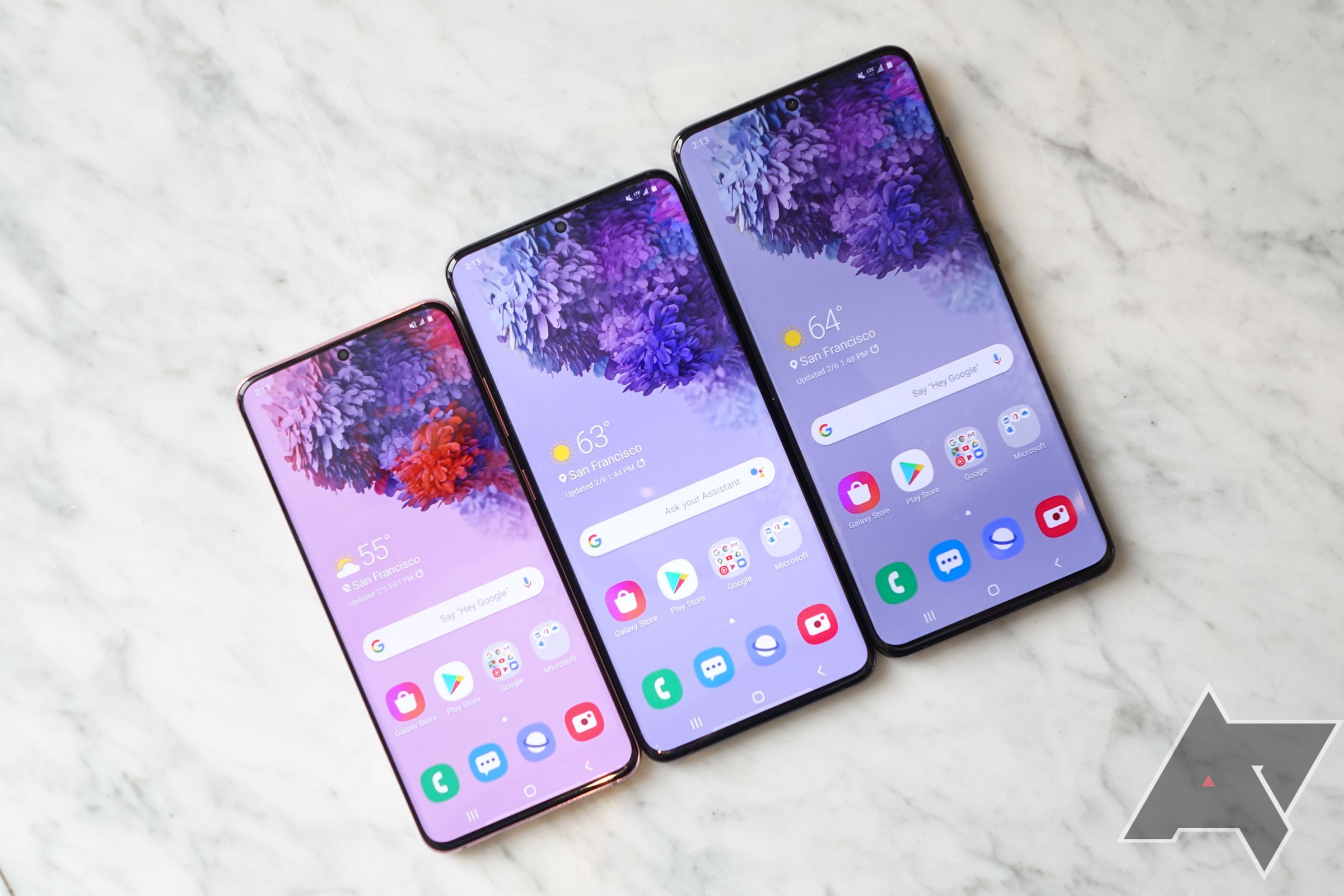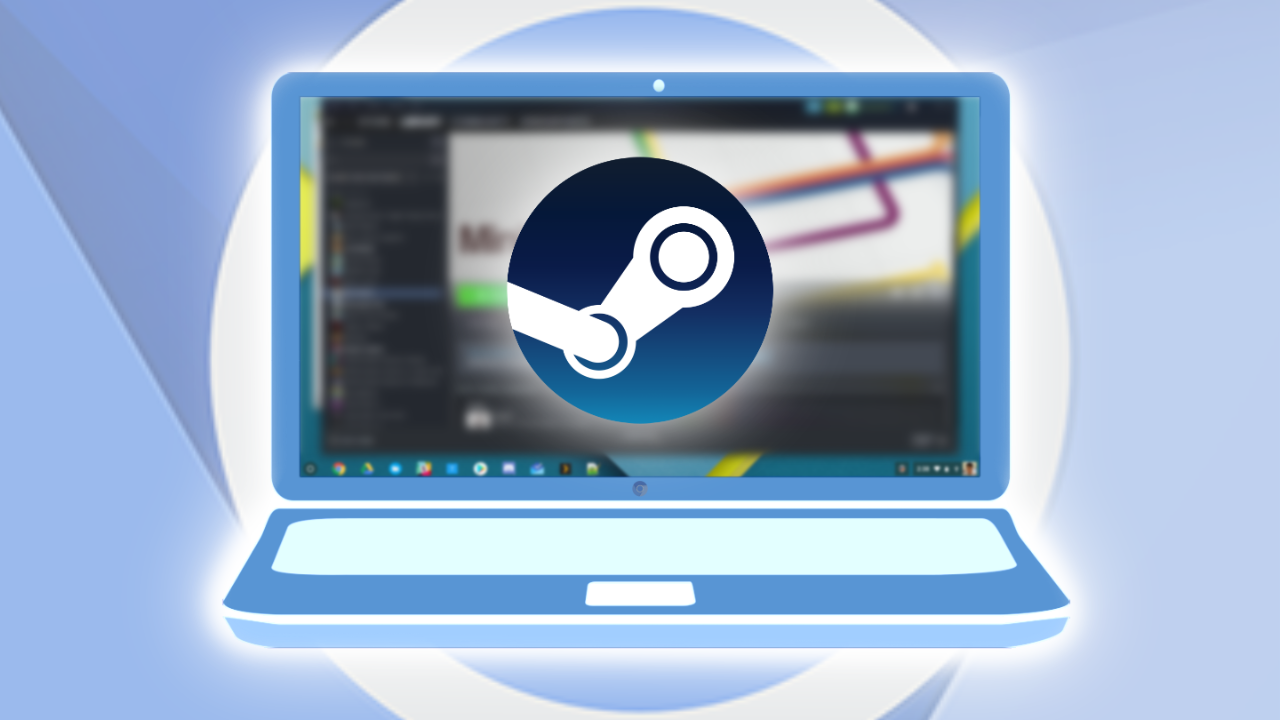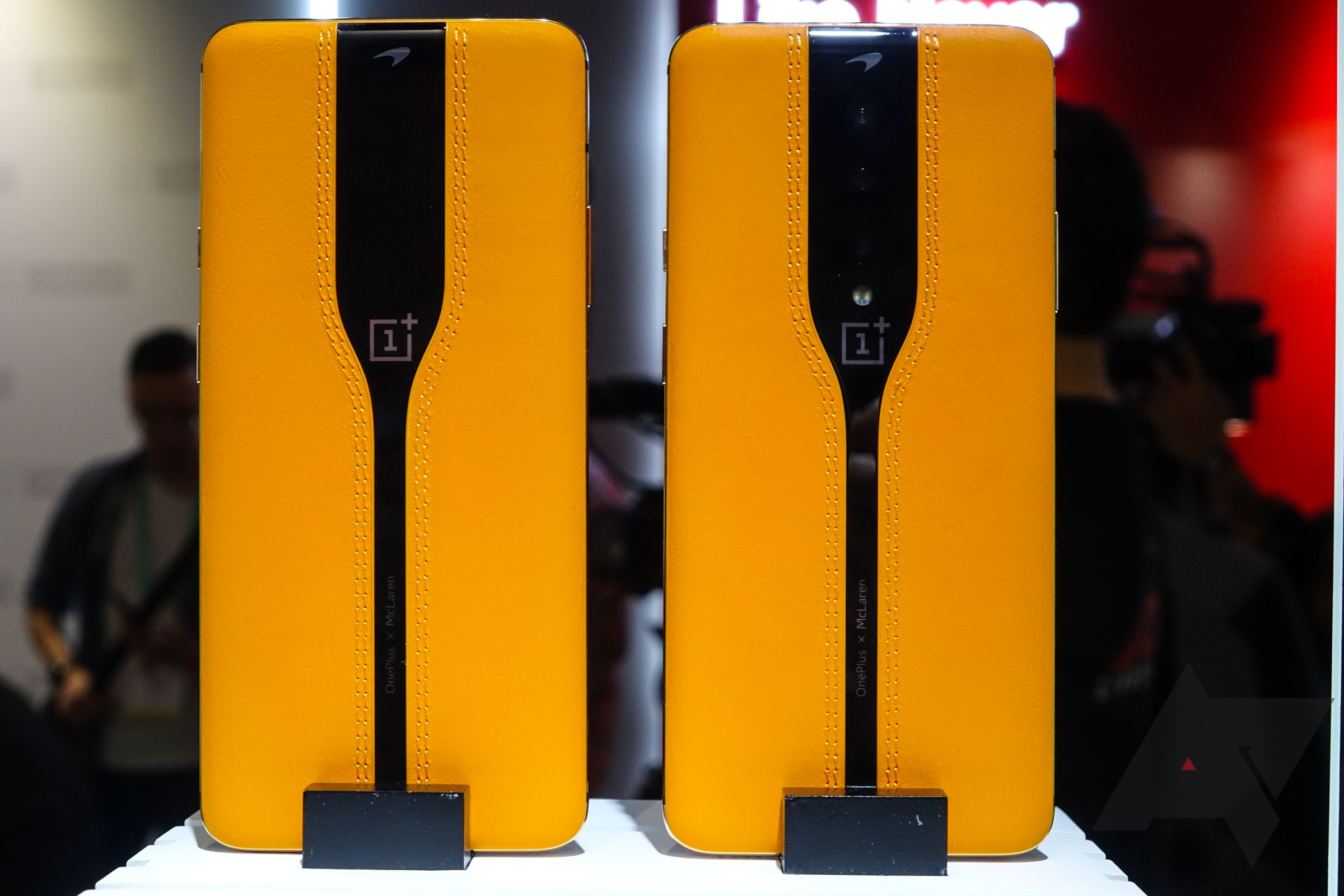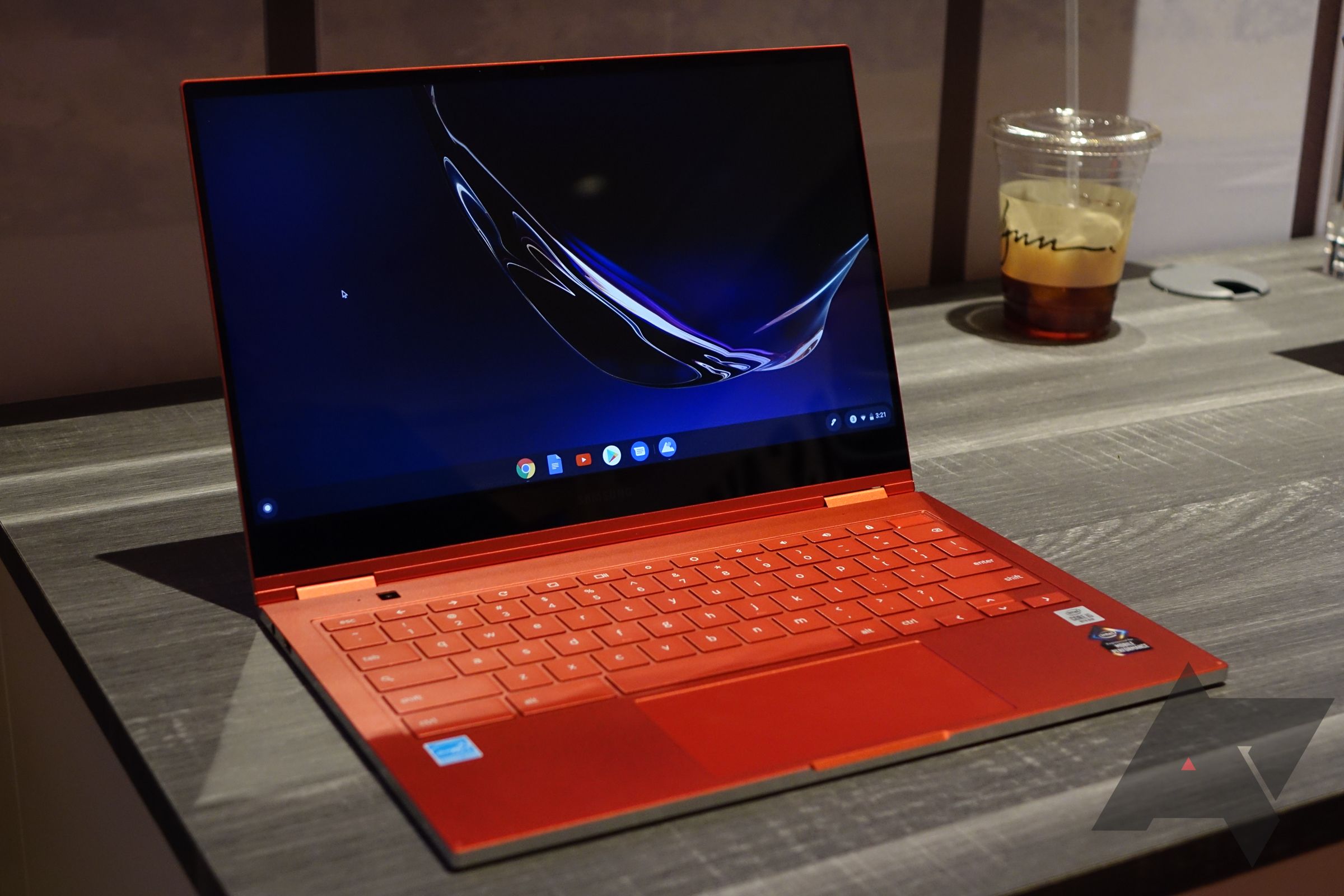
David Ruddock
Contributing since June, 2010
-
3358articles
Page 5
About David Ruddock
David is the former Editor-in-Chief of Android Police and now the EIC of Esper.io. He's been an Android user since the early days - his first smartphone was a Google Nexus One! David graduated from the University of California, Davis where he received his bachelor's degree, and also attended the Pepperdine University School of Law.
Latest Articles

US carrier policies about coronavirus and late fees are much too vague right now
The policies are barely sketched out, and the consequences of not paying could be significant
All four of America's big carriers have announced that they'll be waiving late payment fees and won't cut service off for anyone unable to pay their bills because of the coronavirus pandemic. This policy will be in effect for the next 60 days and is, of course, a good thing, and one that is both kind and sensitive to the plight many people in this country will soon face: mass temporary (and probably many permanent) layoffs and huge economic uncertainty.

Stressful, but necessary: How to follow coronavirus news (while avoiding fake news) without going crazy
Getting accurate, timely news is critical, but avoiding bad information is even more important
First off, I know: Android Police is a website about Android, and Google, and mobile technology. But it's also a website where millions of people get fast, up-to-the-minute news about those topics, and that's a reputation we've come to pride ourselves on over the years. When it comes to gathering the news and reporting the facts, we have a decade of experience as an organization, and today I thought we'd do a little community service in bringing that skillset to bear in a way that could be useful during these very unusual (and kind of scary) times.

Google is protecting the Pixel 4 from the Pixel 4a, and it's hurting both phones
Google is giving its flagship an unnecessary, unhelpful launch cushion
When it comes to A/B tests, Google is the de facto king. Be it chat apps, social networks, or email, Google loves to place multiple products into a virtual death match, with the prize being the chance to continue existing (or, often, just die later). This strategy has in equal parts frustrated and delighted fans over the years, because it allows Google to bring innovative and interesting products to life that otherwise would be shelved for functional duplicity. And right now, a real A/B test is taking place inside Google's smartphone division, between the flagship Pixel and the budget-tier Pixel "a" series. Except, Google really seems keen on keeping the two as far apart as humanly possible, and I think that's to the serious detriment of both.

Samsung should drop Qualcomm's bad fingerprint scanner technology
Qualcomm and Samsung had over a year to get this ultrasonic tech right. They still can't.
So far, I really like the Samsung Galaxy S20. I love its rich, vibrant, and buttery smooth 120Hz display. I love its excellent performance thanks to the new Snapdragon 865 chip. I love how quickly it charges, its more modest size compared to the S20+ and Ultra, and I love the improved haptic feedback experience. It's a good phone! Unfortunately, it still has one of the worst features of its predecessor: Qualcomm's utlrasonic fingerprint scanner.

America isn't ready for 5G, even if our phones are
A messy rollout doesn't seem likely to resolve soon, as structural issues surface
5G will be the cause of transformative, disruptive changes across our world. At least, that was the promise. As fifth-generation wireless networks begin rolling out across the globe in 2020, though, the world's richest economy feels further behind than ever in the race to deploy new spectrum and networks to accommodate this major technical shift. And that trend shows few signs of letting up for years to come.

Verizon may sell the Pixel 4a and 5 after all (Update and retraction)
We're retracting our original story - read on
Late last night, I posted a story claiming Verizon was closing up shop on its relationship with Google and the Pixel. As of this morning, I'm retracting that claim, because the previously reliable source from which I received it—a source that I know and trust, and provided information from a variety of contexts and sources—was incorrect. While I'm unable to share more specific information, I have extremely good reason to believe that source was working with inaccurate, unreliable, or outdated information (or all three), which led to a conclusion which is not supported in reality.

2021's smartphones will greatly ease the 5G transition for US carriers
Qualcomm's new X60 modem will bring much-needed carrier aggregation support... in 2021
While you can't even buy more than two smartphones with Qualcomm's brand-new X55 5G modem in the US right now, the company has already announced the part that will replace it: the Snapdragon X60, and it comes with some seriously important improvements for US cellular operators.

The Galaxy Z Flip feels like a regular smartphone—and that's exactly why it's amazing
Samsung is clearly making progress on foldables
Foldable phones have their detractors, but as they continue to evolve, it's quickly becoming clear they're maturing in both concept and execution. Enter the Galaxy Z Flip, the first phone I feel confident in saying feels like a regular smartphone. There's no amazing use case it will enable, no killer software feature, and the specifications aren't even cutting-edge in 2020. I contend that none of this actually matters, and that it doesn't matter if you actually buy this phone.

The standard Galaxy S20 doesn't support mmWave 5G—here's why
The S20+ and S20 Ultra do, but there are a couple reasons why the S20 doesn't
While the Galaxy S20+ and Galaxy S20 Ultra come packed with support for the latest mmWave 5G connectivity here in the US, their smaller sibling, the Galaxy S20, doesn't. There are a couple reasons for that.

When the transition to 4G began around the turn of the decade all those years ago, the first 4G phones shared one thing in common: a near-complete lack of 4G network interoperability. A 4G phone bought on Verizon would never work with 4G on Sprint, and a 4G phone bought on T-Mobile would never or barely work at all on AT&T's 4G, a situation which persisted for years (and which continues on many cheaper phones to this day).

The Galaxy S20 family is insanely expensive—here are our first impressions
A $1400 smartphone is going to be a hard sell, even for Samsung
The $1000 smartphone is no longer cause for sticker shock: meet the $1400 smartphone, your new "wow" benchmark. That's the price of Samsung's Galaxy S20 Ultra, the range-topping superphone Samsung hopes will one-up Apple in the ongoing battle for Crazy Expensive Phone dominance.

In what is an increasingly dismal downward spiral, MWC 2020 appears to be on the verge of collapse. The fate of the world's biggest smartphone event, an annual convention held in Barcelona for a decade, will allegedly be decided on Friday. That this news comes on the day of Samsung Unpacked and the launch of the Galaxy S20 feels especially... weird.

Read update
A report from XDA Developers today cites the existence of three codenames potentially related to Google's upcoming affordable smartphones (or phone), and evidence discovered alongside those names paints a more confusing picture of the situation than ever. The long and short of it: there could be two Pixel 4a variants after all, and one of them could support 5G.

I'm generally of the opinion that we shouldn't given attention to those who are seeking it for the wrong reasons or under false pretenses, but I just couldn't ignore this story: Escobar Inc. (yes, that Escobar) is now telling consumers that it will sell a very-much-not-a-counterfeit Galaxy Fold for the low, low price of $400.

Let me preface this post by saying that I love Android's notification shade. I love the toggles for things like airplane mode and dark theme, I love the platform's increasingly rich and smart notification quick actions, notification bundling, and just how Android handles notifications in general. But after three months of using the Pixel 4 XL, I've come to an increasingly annoying realization: the notification shade is having absolutely ruinous effects on the phone's facial recognition performance, something I've never experienced on the iPhone. And the simple reason is fingerprints.

Last week in Las Vegas while at CES, I spoke with Kan Liu, Director of Product Management for Google's Chrome OS. In a wide-ranging discussion about the Chrome platform and ecosystem, Liu dropped something of a bombshell on me: the Chrome team is working—very possibly in cooperation with Valve—to bring Steam to Chromebooks.

CES 2020 brought us new smartwatches, Chromebooks, smart home gadgets, and even a few phones. Here are some of our favorites that we chose to award this year.

Speaking to a source familiar with the companies' plans, Android Police has learned that the OnePlus 8—the next smartphone from OnePlus—will be launching on Verizon in the United States, and that it will have 5G connectivity on board. That connectivity would likely mean support for Verizon's ultra-fast but ultra-small mmWave network.

When OnePlus announced it would unveil a concept smartphone at CES this week, speculation ran rampant. Could it be a foldable? A first look at the OnePlus 8? Some new form factor or extreme design exploration? Well, then we learned it was actually... none of those things. It was a phone wrapped in leather with disappearing camera lenses. I took a quick look at the Concept One here in Las Vegas yesterday, and I can confirm that's what we got. Also, that it is very, very orange.


